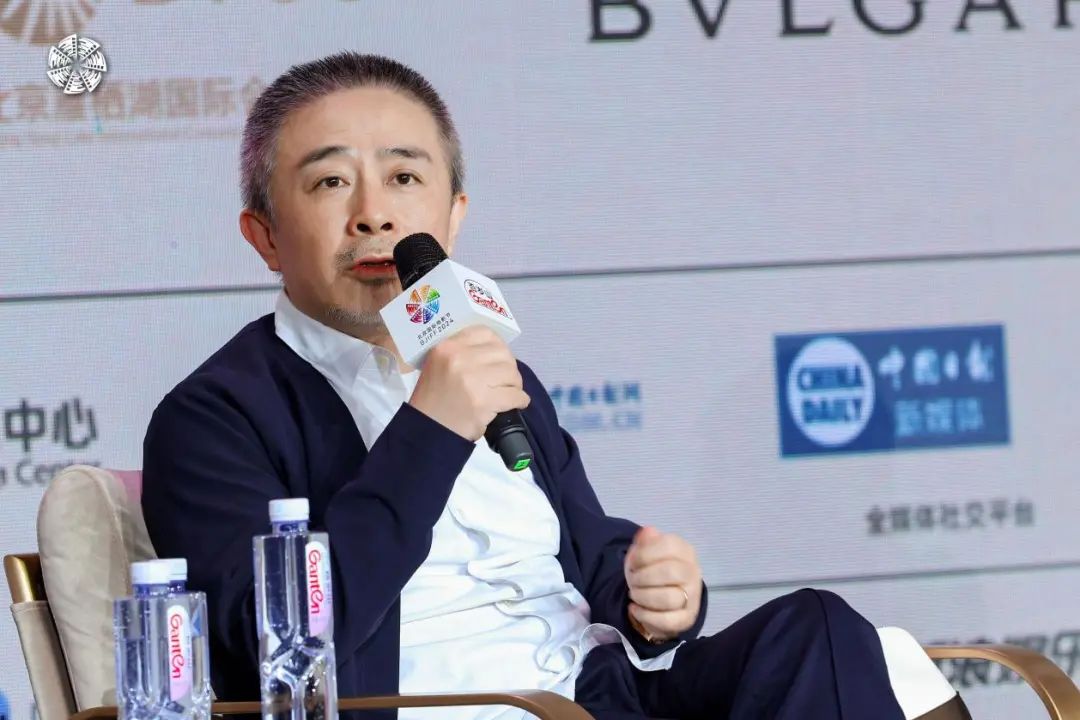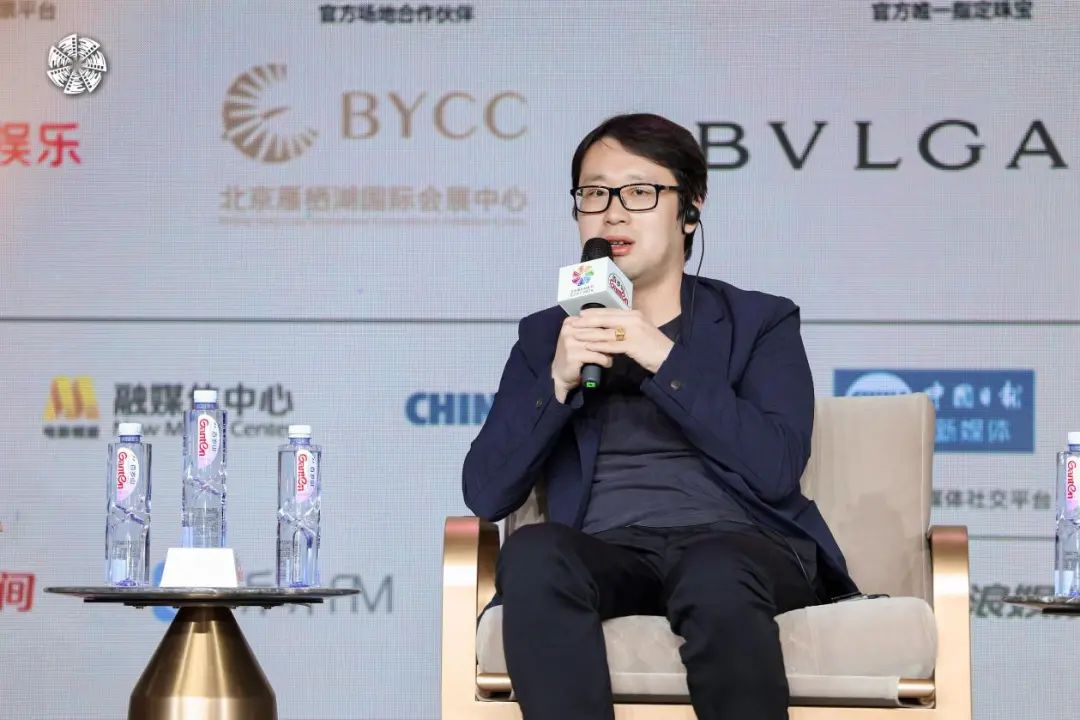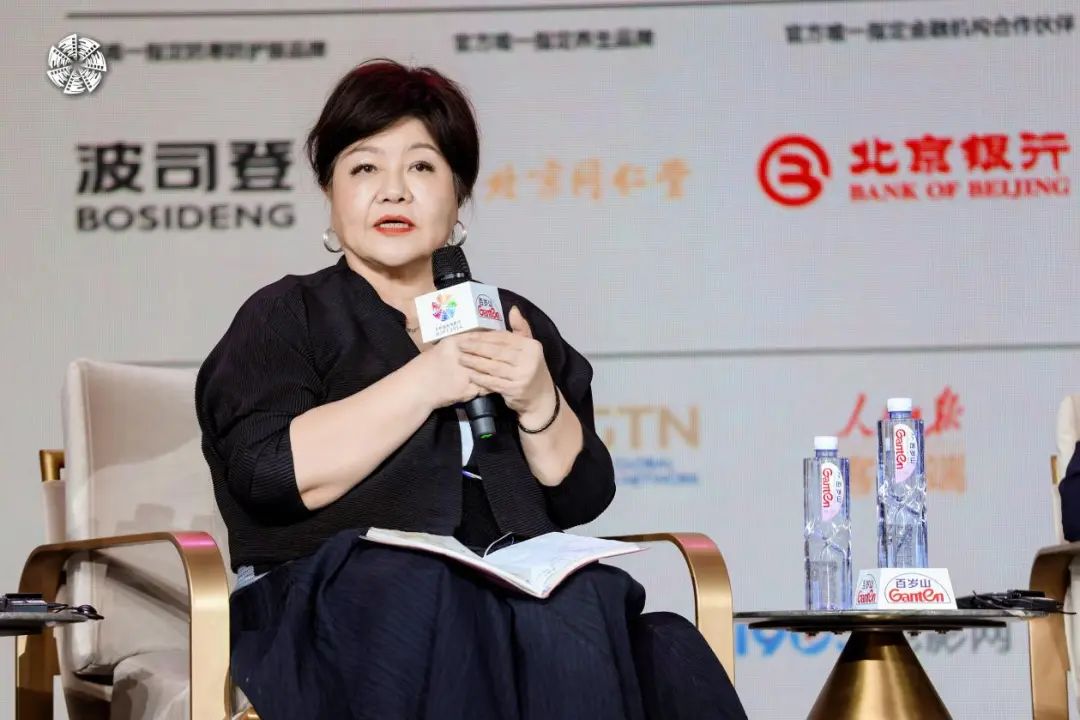Forum
Filmmakers at Home and Abroad Discuss How to Make Films Well Received by Audience
The 14th BJIFF Creation Forum: The Excellence and Diversity of Film Creation, co-hosted by the BJIFF Organizing Committee and China Film Archive (China Film Art Research Center) was convened at Langyuan Station on the afternoon of April 21.

Creation Forum: The Excellence and Diversity of Film Creation
Huo Zhijing, Deputy Director of the Publicity Department of Beijing Municipal Committee of the Communist Party of China, Director of Beijing Municipal Film Administration, and Vice Chairman and Secretary General of the BJIFF Organizing Committee, addressed the forum and underscored that Beijing has always attached great importance to filmmaking. Being the national cultural center, Beijing gathers the largest group of filmmakers, and creates favorable environment for filmmakers with its profound cultural background and vibe. The city has produced outstanding films in recent years, such as The Great War, Wandering Earth II, Article 20, Full River Red, Lost in the Stars and Johnny Keep Walking!, and led the entire country in terms of quality and quantity. This year, Beijing adopted 12 measures to fund and support the making and production of outstanding works. And the coming “New Beijing in New Era” Film Creation Program further shows Beijing’s leading role in filmmaking.

Huo Zhijing
Sun Xianghui, Secretary of Party Committee and Director of the China Film Archive (China Film Art Research Center) and Chairman of China Taiwan Hong Kong Film Research Association, emphasized in her speech that this year marks the 10th anniversary of General Secretary Xi Jinping’s speech at the Forum on Literature and Art. Over the past decade, Chinese filmmakers have tried to figure out and worked on the trends of the era and people’s needs, made commendable progress in connecting with the audience and presenting social concerns, striding more steadfastly towards higher aims. Based on the survey results about audience’s satisfaction of Chinese films over the past decade, we put audience first, and sorted out the big picture for creative development of Chinese cinema. Hopefully, it will shed light on richer and more diverse higher-level development of filmmaking.

Sun Xianghui
Panelists at the roundtable included Peggy Chiao, prestigious film scholar, executive producer, producer, author, and director of the Graduate School of Filmmaking at the Taipei National University of the Arts, Chen Yu, screenwriter, director and professor at the Peking University, Dong Runnian, director and screenwriter, Andrew Lau, director, cinematographer and producer from Hong Kong, China, Nadine Labaki, Lebanese director and actress, Jerzy Skolimowski, Polish director, screenwriter and actor, and Yu Zhou, President of the Light Chaser Animation.
Huangfu Yichuan, research fellow at the China Film Art Research Center and Editor-in-chief of the magazine Contemporary Cinema, and Sha Dan, Program Planner of China Film Archive and Curator of Beijing Film Panorama, hosted the roundtable.

Huangfu Yichuan

Sha Dan
▌Seek the maximum connection with the audience
Most of the panelists emphasized inseparable ties between filmmaking and audience. Lebanese Nadine Labaki explained, “We wish to speak up on behalf of people.” She took the example of Capernaum and stressed that, to make a child story like it, “It must be real. I can’t make it up with pure imagination.” She added, “I visit slums in Lebanon every year to understand the situation of children and know what they think. That’s how I truly get the reality of their lives.”

Nadine Labaki
In order to make more films well received by the audience, Chen Yu spends four hours on social news every day. In his view, it’s very important for filmmaking to learn about social emotions and psychology, as well as interests, values and feelings of the audience. “Those are what current films should offer. Maybe they were not key points in many films. But I think current mainstream films can adopt the strategy of comforting and empathizing the audience, like how Johnny Keep Walking! relates to ordinary people.”

Chen Yu
Before Andrew Lau shot The Dumpling Queen, the script had been circulated in the filmmaking community for long. When it comes to doubts why he shot such a loving film, in his powerful defense, “Films are about different subject matters. I want to present the story to the audience. If you watch the film, call your mom and tell her that you wish to eat dumplings she makes, then I succeed in making the film.”
It took Dong Runnian five years to finish the script of Johnny Keep Walking!. According to him, filmmaking seeks ways to get close to ordinary audience and connect firmly with individuals. “The script was amended greatly. Whenever I was caught in the bottleneck, I made more interviews and investigations, and then amended the script based on new cases.” He shared his own experience and feelings with many creators, “Most importantly, genre-specific films need to relate to as many audience as possible, or at least target audience, and tell stories that the audience truly care.”

Dong Runnian
Peggy Chiao believed that not just realistic films are relatable to the audience. On one hand, the audience pay attention to films related to their personal experience; on the other hand, “Films presented by the Light Chaser Animation, which seek motivation and inspiration from traditional Chinese culture and stories, and infuse them with a sense of modernity, are also well received by the audience.”
▌Development of diverse films with timely relevance
Following the theatrical release of Chang An during the summer holiday period in 2023, the Light Chaser Animation continues to work on its premium IP franchise -- White Snake, the third film White Snake: Lifetime is expected to be opening in cinemas on Chinese Valentine’s Day. As Yu Zhou introduced, “It’s our company’s first comedy romance animation”, and hopefully, it’s a select film that can pass inspection by the audience. Then he said, “What kind of film is a select one? We believe it must be artistically advanced, commercially successful and influential in the era. The White Snake and New Gods: Yang Jian achieved impressive commercial results, but they are not that influential. So, we hope there might be select films in the 'New Culture' series.”
Jerzy Skolimowski, who’s been working in the film industry for over 60 years, was keenly aware of changes in cinema. From Knife in the Water to EO, “In those two stages, the biggest difference is that there are fewer films sticking to linear narrative.” More and more young creators show their interest in short videos and emerging technologies. In his opinion, new ways of storytelling make the narrative more vivid and intriguing, and create more freedom for filmmakers.

Jerzy Skolimowski
Meanwhile, Jerzy Skolimowski pays close attention to filmmaking by newcomer directors. He said, “Blockbusters can attract global audience, but they can cost billions of dollars in production. If only the budget were invested in 250 newcomer directors, each of them 10 million dollars, young filmmakers would have more opportunities to stand out. This strategy might facilitate the booming of cinema, and even bring about more blockbusters.”
Andrew Lau shared behind-the-scenes stories about Infernal Affairs. “It was hard to shoot Infernal Affairs. Back then, the Hong Kong cinema was in very bad shape. There were box office flops and fewer productions. Many people were saying the Hong Kong cinema was dying and it was a twilight industry. But I only knew filmmaking. I didn’t want to give up. Directors and screenwriters in Hong Kong, China, didn’t finish their scripts, usually about 100 characters. But I wanted to change that when I shot Infernal Affairs. I must have a complete script, or I wouldn’t start shooting.” He finished the shooting with resolution to “survive the desperate situation”.

Andrew Lau
As a creator, Dong Runnian indicated that in the current context of trending short videos, it’s essential for them to study and improve the narrative of genre-specific films, and make further review and exploration so as to create narratives for the new era. He would make trials in his filmmaking, “The only thing we are sure is that the audience enjoy watching new things. Creators keep trying them. They may succeed or fail. But it doesn’t matter. Only by constantly trying can we advance the film industry. I was very impressed by Chang An. Its narrative is completely different from that of Hollywood productions. But it excels at arousing audience’s emotions when they watch the film. There are many elements sharing the same pace as traditional novels or poems.”
▌Responsibility for cross-cultural communication
Nadine Labaki specially noted that creators must have a specific need, “Today, we think cinema is becoming a social responsibility, and it’s able to present sublime ideals and aspirations. I believe that should be the essential motivation and intrinsic drive for creation.” In her eyes, filmmaking is not just about delivering a film or telling a story, but more about shouldering responsibilities. “The reason why certain films are able to reach the bottoms of our hearts is art relates to the audience in a unique way. The resonance originates from emotional connection, and exerts far-reaching impacts on individuals.”
Cinema is a common language for people around the world. Domestic filmmakers are responsible for taking touching Chinese stories to places around the world. Given the screening popularity of Wandering Earth II, Creation of the Gods I: Kingdom of Storms, Chang An, and YOLO overseas, Yu Zhou briefed us on performance of Chinese films in global markets. “The film Green Snake was launched on Netflix in December 2021, and became available in 10 languages in three months. It attracted 30 to 40 million views overseas. It’s fair to say we have a sold audience base.” He expressed his wishes that influential films worth communication, like Chang An, “present cultural gems of China over thousands of years through outstanding characters or classics in the form of animation. It’s also the responsibility and obligation for creators in the new era.”

Yu Zhou
According to Peggy Chiao, the communication barrier for international dissemination of Chinese films entails adequate cultural understanding and high-quality translation. She gave an example, “I renamed Tsai Ming-liang’s film as Rebels of the Neon God when it was submitted to the Berlin International Film Festival. The combination of rebellious young people and neon lights in cities is very accessible for foreigners. They have no idea who Nezha is. We need to interpret myths from present perspective, like Chang An does.”

Peggy Chiao
She also mentioned the importance of aesthetic breakthroughs in promotion of films, and it’s necessary to seek proper ways to show creators’ aesthetic strengths. The promotion requires us to overcome linguistic and aesthetically cognitive difficulties, and entails assistance of experts or other means to conduct effective communication and marketing. She took the example of film subtitles, “It’s paramount to check the subtitles when assisting a director. Those that only understand English won’t suffice. The subtitles must be jointly reviewed by native Chinese speakers and foreign experts for at least three times. Subtitle translation simplifies complex concepts to make it easy for the audience to understand and immerse themselves in the film more quickly.”
The new era offers vast space and rich source materials to filmmaking. Filmmakers should adhere to integrity and innovation, reach out to the general public, strike the best balance between the times and tradition, reality and fiction, art and market, and commonality and individuality with sincere, benevolent and truth-seeking mindset, and create high-quality films that show national style, realistic concerns, international perspectives, and common human emotions so as to satisfy the diversified aesthetic needs of the audience. On the new journey, filmmakers should continue to tell Chinese stories and demonstrate the spirit of the times, open a new chapter of cinema, and contribute Chinese wisdom and power to global cinema.
Please download the Beijing International Film Festival APP for more interesting content

